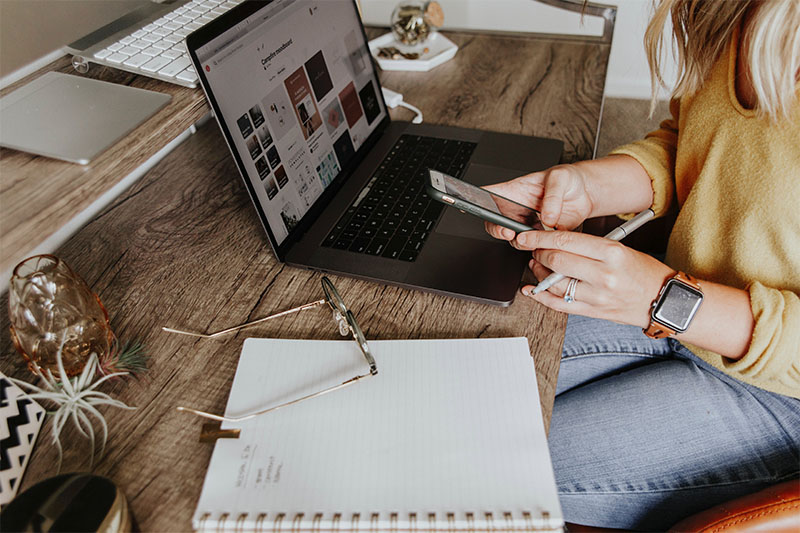Digital overload: 6 tips on how to avoid it

Digitalisation is an unstoppable movement, and the pandemic has given it another big boost. Everything happens at once, usually on a single device. Constant accessibility blurs boundaries and many find it increasingly difficult to separate university/work and private life. As a result, digital overload is always the dish of the day. I investigated how we can walk this fine line and combat the daily flood of information.
I have noticed lately that it is often difficult for me to switch off in the evenings. It’s no wonder – my mobile phone is always with me, and I am overwhelmed by the flood of messages and information coming my way, even at the start of my day. My brain has problems processing it all and I feel overwhelmed. Sound familiar? Then these 6 tips for avoiding digital overload could help you too.
1. Establish physical separation
If you can close the office door behind you in the evening, it is also easier for you to mentally switch off. As a rule, you should not work where you spend the evening after work. As a student, you probably don’t have a room of your own to study in. Despite this, you should choose a place where you only work. At a desk is the perfect place for this – on the couch or in bed is a no-no! When you close your laptop in the evening, it is best to leave it on the desk.
2. Write to-do lists the old-fashioned way
Studying, working, entertainment, keeping in touch with friends and family – a lot is happening digitally in our lives right now. Keeping a to-do list can help you stay on top of things and prevent digital overload. Put pen to paper and make a list either the night before or in the morning of each day. Put this list on your desk. Checking off the items one by one feels good, which in turn increases productivity.
3. Pace yourself
Switching between too many open tabs not only leads to lower productivity, but also means a lot of unclosed tabs in your head. So close all programmes and pages you don’t need and focus on one task at a time. When working on your laptop, put your phone out of reach. That way, you won’t be tempted to constantly check your WhatsApp messages or Instagram feed.
4. Deactivate push notifications
Almost every minute of the day, I receive emails, notifications from all social media apps and messages from friends and family. Every time the screen lights up, my attention is immediately drawn to my mobile phone. Is this the same for you? Turning off push notifications is a real gamechanger. Checking emails and the like no longer happens immediately but becomes a fixed part of your to-do list. Try it out!
5. Take a break
If you work at a computer for long periods of time, you should make sure to take regular breaks. Even if it is tempting to reach for your mobile phone: Try to make your breaks screen-free. Get out into the fresh air, do a little workout or cook something – only you know what’s best for you. The time directly after getting up and before going to bed should also be screen-free. According to psychologists, it is easier for us to relax in the evening if we do not use our mobile phones for at least an hour before going to bed. Our brains should not be flooded with information immediately in the morning either. For example, I bought an alarm clock and banned my mobile phone from the bedroom.
6. Do things the old-fashioned way
Digitalisation makes our everyday lives easier in many ways. Banking, dealing with the authorities, ordering food, shopping – everything works with just one click and on a single device. But sometimes doing things the old-fashioned way can be quite refreshing. Support local businesses, send a letter instead of an email, pick up food from your favourite restaurant by bike.
Oh, and by the way: the upcoming summer holidays are the ideal time for a digital detox (blog post in German). Our editor Bianca even went one step further and dared to quit social media (also in German).
I hope you were able to pick up some valuable tips!
Maria
Photo Credits:
Titelbild: Corinne Kutz via Unsplash




